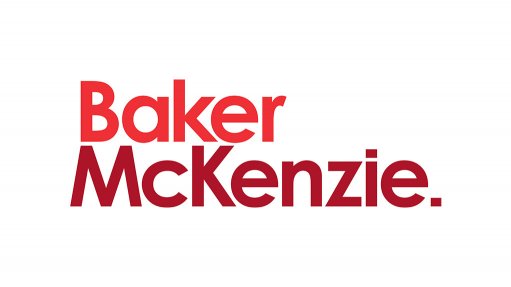
It has been a frequently expressed sentiment that the wrath of the Covid-19 virus is indiscriminate, impacting all the corners and crevices of the world. Having said that, it is also unsurprising that the economic and social implications of the pandemic have been palpably more disastrous for vulnerable communities, including women.
The United Nations Development programme (UNDP) reported that gender-based violence (GBV) escalated during national lockdowns as women were forced to shelter with their abusers. The UNDP stated that, “Pre-existing toxic social norms and gender inequalities, economic and social stress caused by the Covid-19 pandemic, coupled with restricted movement and social isolation measures, have led to an exponential increase in GBV.”
Separately, the National Bureau of Economic Research (NBER) in the United States reported in a working paper entitled The Impact of Covid-19 on Gender Equality that, “the employment drop related to social distancing measures has a large impact on sectors with high female employment shares.” A study from North Western University in the United States also revealed that Covid-19 had a disproportionately negative effect on women and employment opportunities, noting that around 740-million women globally work in the informal economy, which was detrimentally affected by the lockdowns.
The NBER also observed that, “[i]n addition, closures of schools and day-care centres have massively increased childcare needs, which has a particularly large impact on working mothers.” The closure of childcare facilities has resulted in many women having to either give up work or take unpaid leave in order to fulfil primary caregiver roles. Unpaid care work also spiked during the pandemic, increasing the demands placed on many women who perform these roles in their families and communities.
Additionally, women’s health and pregnancy medical services were disrupted by the pandemic, leaving women without access to vital care. At the same time, the International Labour Organisation reported that 70% of global healthcare employees on the frontlines of the battle against Covid-19 are women – working long hours with daily exposure to the virus, while still having to balance increased demands on their time at home.
The above examples demonstrate the impact of the Covid-specific macroeconomic devastation on the individualised, lived experiences of women the world over. In this context, it has become ever more relevant and important to recognise the role of women in our families, communities and workplaces, ensuring their protection and support during these times in particular, establishing the foundation for sustainable support in the long run.
Policy measures should be implemented to address the impact of the pandemic on women, including, for example: measures that focus on support grants for female-led households; business stimulus packages for women running small businesses; employment initiatives that focus on representation and leadership opportunities for women; services to address social support for women at home, including ensuring women are able to connect to the right help; and health protection packages aimed at women. Businesses considering their post-Covid 19 strategies should also ensure that women, and all individuals across the gender identity spectrum, are invited to participate in formulating plans and strategies for a post-pandemic inclusive and egalitarian workplace.
Gender equality and inclusion has always been important to Baker McKenzie. The firm signed the Women’s Empowerment Principles and is a member of UN Women’s Corporate Advisory Group in the United Kingdom. Alongside a number of companies associated with UN Women, Baker McKenzie has been running the HeForShe campaign within its offices for two years, to encourage inclusive participation in the gender equality movement across the gender spectrum. The firm recently announced global aspirational targets set at 40% women, 40% men and 20% flexible (women, men or non-binary persons) by 2025, applying to partners, senior business professionals, firm committee leadership, and candidate pools for recruitment. Further, the firm’s innovative LIFT programme is designed to support its female employees’ progression to key leadership roles, and its BAgile flexible working programme was implemented years ago, benefitting many female employees that required more flexible work schedules. When the pandemic struck, this programme ensured an efficient and smooth transition to homeworking for all employees.
In the community, members of the firm’s Johannesburg office volunteered pro bono legal services for TEARS, a foundation that offers survivors of gender-based violence free access to service providers. The office also supports Bomakoti Bewundlu Praying, a Non-Profit Organisation (NPO) that was formed by employee Pinky Mohale, to provide shelter, counselling and resources for abused women and their children. The office also works with Lawyers Against Abuse (LvA) - a registered non-profit organisation based in Diepsloot. LvA provides free legal and psychosocial services to survivors of sexual violence, domestic violence and child abuse. The Johannesburg office is also working with a number of other Baker McKenzie offices on the Global Rights for Women campaign - analysing domestic violence laws to assist in setting the right standards for international and regional legal frameworks.
While these initiatives are part of the solution, they are by no means a panacea to the pervasive and systemic issues associated with the gender equity and inclusion project. The difficulties associated with gender inequality, made worse by the pandemic, are deep-rooted and will require a collective call to action as well as sustainable efforts that are deliberately and consciously implemented over time. It is therefore incumbent on us all to ensure that the inclusion project is made real through fostering supportive cultures at work, in the community and at home. By ensuring that all who occupy these spaces feel equal, protected and comfortable to show up as their authentic selves, we will build a more inclusive post-pandemic world that allows us the opportunity to recover and equip ourselves for future challenges and is far better than the one we have left behind.
Written By Lerisha Naidu, Partner and Head of the Diversity & Inclusion Committee, Baker McKenzie Johannesburg